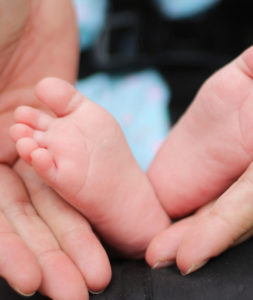Florida Supreme Court Reverses Decision, Permitting Child with Brain Injury to Pursue Personal Injury Claim

In a recent Florida brain injury case, a teenager suffered permanent brain damage after her treatment for hydrocephalus at a Medical Center and Children’s Hospital. The teen had been diagnosed with hydrocephalus at 12 years of age, caused by a tumor creating a build-up of excess cerebral spinal fluid in the brain. To assist with the blockage, she underwent surgery, which went well. Another procedure was scheduled two years later to address the scar tissue left by the first procedure and remove the blockage building back up.
Before she could undergo surgery, she began vomiting and experiencing painful headaches. The girl’s parents called the children’s hospital, which advised them to take her to the nearest hospital for a CT scan, if they could not make it to their facility. The daughter arrived by ambulance and was labeled as an “urgent” status rather than emergent or non-urgent status. The treating doctor in the medical center ordered a CT scan and examined the teen. The physician noted a normal pupillary exam with no deficits to her eyes. Another eye exam was performed, which again showed her pupils reacted to light and were equal to each other. When the CT scan results came out, the radiologist determined the teen’s hydrocephalus was worsening based on a comparison to a scan taken six months earlier. Despite this, the treating physician at the center called the teen’s pediatrician and reported her condition as “stable.”
Transit from the medical center was arranged between the children’s hospital and the medical center. Within the hour and twenty minutes between the call from the treating physician and the estimated pick-up time by the helicopter, the teen began vomiting and experiencing a low heart rate. This was relayed to the children’s hospital and medical center staff. The teen was then placed on the helicopter 25 minutes after the estimated arrival time and examined by medical staff onboard. The nurse determined she had a decrease in speech but was able to respond to her mother by nodding her head. The teen was taken straight to the ER, but she arrived in critical condition and had to undergo an emergency ventriculostomy. Even though the procedure saved her life, the teen suffered permanent brain damage with great mental impairment. The teen is no longer able to feed herself, nor is she able to live or work independently.
The parents sued both sets of medical providers, alleging they failed to provide proper medical care for their daughter. The parents presented several expert witnesses to provide their opinions on the timing of transferring her from the medical center to the children’s hospital. One neurosurgeon testified that if she had come under his care prior to herniation, he would have conducted an emergency ventriculostomy. However, he noted that if she received relief for the build-up earlier, the herniation would have been avoided.
The center moved to have its own physician, the treating physician at the ER, testify about what he would have done had she arrived at the medical center an hour or two earlier. The trial court also allowed the testimony of the medical center’s expert on pediatric medicine to testify how the actions of the treating physician matched what other physicians would have done in the same situation. The trial court returned a verdict in favor of the defense. The parents and child appealed.
The Supreme Court found it was an error for the trial court to allow both of these doctors to testify in this manner on behalf of their case. The court found the combined testimony to have the effect of shifting the burden to a standard above what was required for the injured person to prove. The court did not like the echo of the center’s second expert, who failed to provide any testimony about the acceptable standard of care. The court found he did not demonstrate how those who treated the injured person either fell short of or met that standard of care. The Fourth District’s affirmation of the jury verdict in favor of the defense was reversed and the case remanded, allowing the injured person and her parents to pursue a new trial.
The Florida brain injury attorneys at Weston & Pape have the personal injury experience you need at your side to aggressively pursue your claim. To speak with one of our lawyers, call our office today at 772-266-5555 or 561-299-3999 for a free, confidential consultation.
More Blog Posts:
Florida District Appellate Court Reviews Future Medical Expenses in Multi-Car Accident Case, Florida Injury Lawyer Blog, November 28, 2016
Federal Circuit Court of Appeal Declines to Find Equitable Tolling in Slip and Fall Case, Florida Injury Lawyer Blog, October 21, 2016
Florida Court of Appeal Allows Injured Motorist to Pursue Additional PIP Payments to Medical Providers, Florida Injury Lawyer Blog, May 18, 2017

 Call Us Today
- It's Free
Call Us Today
- It's Free